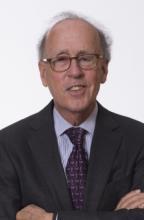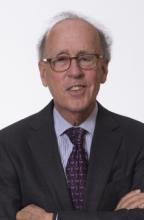Sheryl Sandberg’s Good Fight
Sheryl Sandberg, the chief operating officer of Facebook, has done something pretty gutsy. She has written a manifesto about breaking the glass ceiling, called Lean In: Women, Work, and the Will to Lead, and is drawing fire for it, because she argues that women often sabotage themselves.
Critics are already attacking Sandberg on the grounds that she is blaming the victim. Anne-Marie Slaughter, who wrote a much-read article about the glass ceiling last year, has sought an open debate about where the problems lie. Others, unfortunately, attack ad feminam: Sandberg is rich and powerful, so how can her advice be useful to struggling, underpaid everywomen?
Sandberg is seeking not just to raise consciousness, but to forge a social movement. She wants her “Lean In” circles – all-women spaces to be supported by corporate workplaces – to teach women negotiation, public speaking, and other skills, all merged with upbeat collective support.
I know that this seemingly trivial approach is actually a solid recipe for success. I co-founded a similar program called The Woodhull Institute; by teaching these skill sets, and adding mutual support in an all-female space, our alumnae – whether from barrios or Ivy League universities – quickly and dramatically outpaced their peers.
At first, however, they struggled to identify their own often-remarkable achievements in publicly making a case for themselves. That effort felt so socially transgressive to them that they found it almost painful. So the opportunity to learn and practice speaking and negotiating skills is hardly inconsequential for women’s advancement.
Indeed, as Sandberg rightly stresses, no one trains women in something as simple but critical as speaking in a strong, declarative voice. The range of inflections that are culturally valued in women’s voices (especially young women) are those that often undermine their authority in the workplace. So they often start presentations with an apology, use girlish inflections, and end statements with question marks. But sounding fetchingly unsure about what you are describing is not an effective way to pitch an idea to a potential investor, publisher, or constituent.
The same hard-to-address truth also goes for body language, to which Sandberg also rightly pays attention (as reflected in her book’s title). The talented young women I trained had great difficulty at first simply standing straight and tall; they often projected a lack of confidence physically, or simply looked as if they would rather be anywhere else than in the spotlight. Young men from elite backgrounds, by contrast, learn to project physical confidence as part of their birthright – just as they learn to speak in assertive, declarative voices and claim their achievements.
So here is another tough fact: Institutional battles to redress women’s underrepresentation in land ownership, politics, and so on must be coupled with individualized leadership and skills training for women, ideally in an atmosphere of mutual support in which women learn from peers how to achieve and enlarge their own goals.
This model shows amazing results for women, in contexts ranging from Smith College to the Grameen Bank to all-women job-training programs such as Nontraditional Employment for Women, which trains women to break into highly skilled and high-paying, but traditionally all-male, blue-collar jobs. Likewise, Grace Belgravia, an all-female club, is attempting to rival the clout of London’s elite men’s clubs.
The all-female peer group’s emphasis on supporting women to be strong and achieve their goals is critical, as two young leaders, Courtney Martin and Katie Orenstein (both Woodhull Institute alumnae) recently noted. But, to realize Sandberg’s vision of a social movement in which all-female groups support their members’ efforts to make their own paths successful, we need to overcome obstacles in our own thinking.
The “post-feminist” view that there is no longer a need for all-women spaces needs to be challenged. There is also the question of how workplaces should respond if all-male groups wish to convene as well. My own view is that there is nothing wrong with some same-sex gatherings in a private setting, whereas in public contexts, discrimination is discrimination. Sandberg will have to explain her position on this issue.
A more pressing obstacle, in a sense, is institutionalized feminism, which often finds it more comfortable to blame well-known villains and attack those who dare to call attention to women’s need to learn for themselves the skills of securing and wielding power.
It’s time to move on. Surely we need both the broad social analysis and the leaders who will take it upon themselves to help the next generation of women entrepreneurs and workers to speak for themselves and get what they deserve.
Copyright: Project Syndicate, 2013.
www.project-syndicate.org
This article is brought to you by Project Syndicate that is a not for profit organization.
Project Syndicate brings original, engaging, and thought-provoking commentaries by esteemed leaders and thinkers from around the world to readers everywhere. By offering incisive perspectives on our changing world from those who are shaping its economics, politics, science, and culture, Project Syndicate has created an unrivalled venue for informed public debate. Please see: www.project-syndicate.org.
Should you want to support Project Syndicate you can do it by using the PayPal icon below. Your donation is paid to Project Syndicate in full after PayPal has deducted its transaction fee. Facts & Arts neither receives information about your donation nor a commission.



















